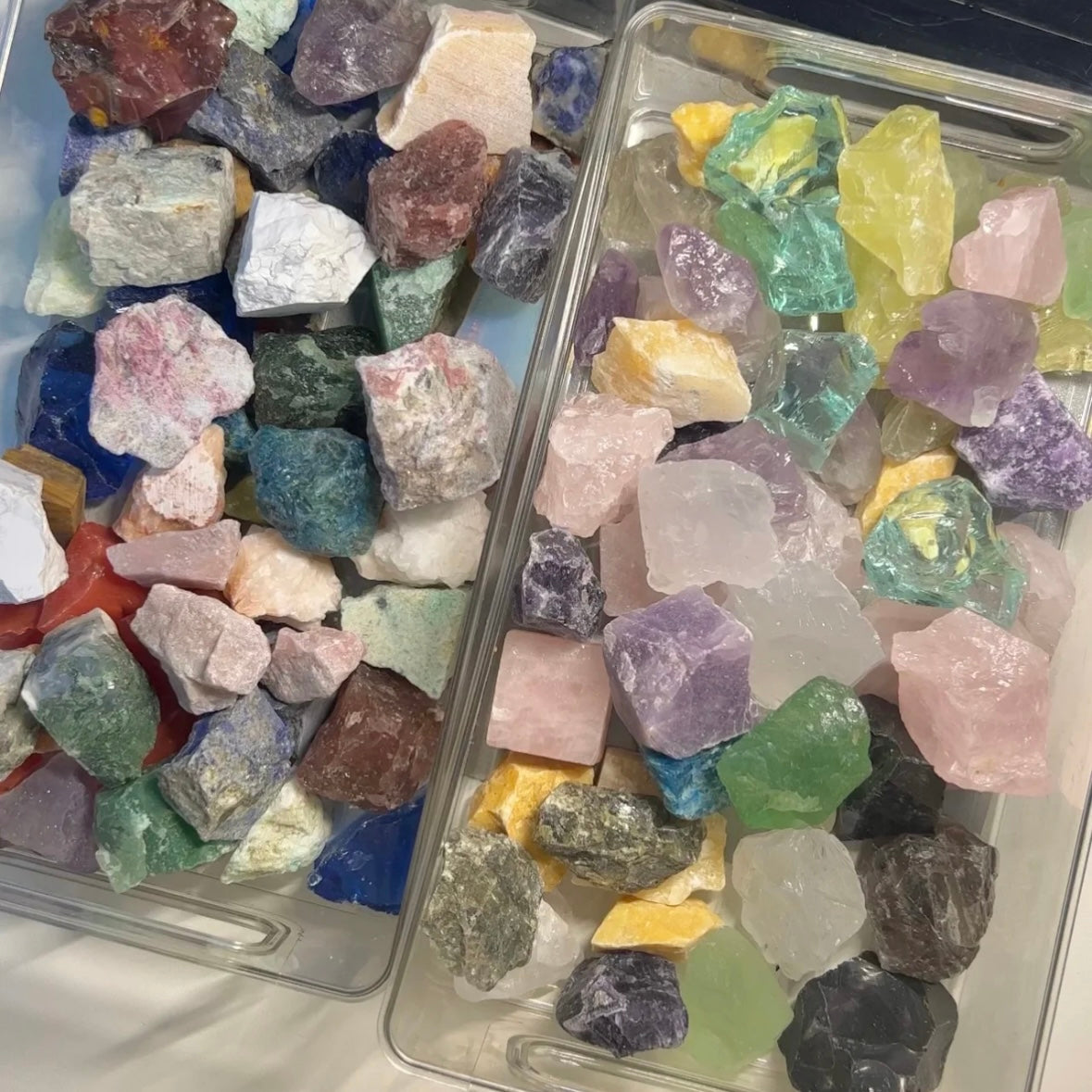What is Depression?
Depression is a mental health disorder that affects a person's mood, thoughts, feelings, and overall behavior. It is more than just feeling sad or having a rough day—depression can lead to a persistent sense of hopelessness, fatigue, and a loss of interest in activities that once brought joy. It can affect anyone, regardless of age, gender, or background, and often disrupts daily functioning, including work, relationships, and social activities.
Symptoms of Depression
The symptoms of depression can vary from person to person, but common signs include:
-
Persistent sadness or a depressed mood that lasts most of the day, nearly every day.
-
Loss of interest or pleasure in activities that were once enjoyable, such as hobbies, socializing, or work.
-
Fatigue or low energy, feeling constantly tired, even after a full night’s sleep.
-
Difficulty concentrating, making decisions, or remembering things.
-
Changes in appetite or weight, either eating too much or too little.
-
Sleep disturbances, including insomnia (difficulty sleeping) or sleeping too much.
-
Feelings of guilt or worthlessness, often accompanied by self-criticism.
-
Thoughts of death or suicide, or attempts to harm oneself.
Causes of Depression
Depression is typically caused by a combination of genetic, biological, environmental, and psychological factors, including:
-
Genetics: A family history of depression can increase the likelihood of experiencing depression.
-
Brain chemistry: Imbalances in neurotransmitters (chemical messengers in the brain) can play a role in depression.
-
Life events: Stressful or traumatic experiences, such as the loss of a loved one, a major life change, or ongoing personal struggles, can trigger depression.
-
Chronic illness: Conditions like diabetes, cancer, or heart disease may contribute to feelings of depression.
-
Social and environmental factors: Isolation, poverty, or lack of support systems can worsen or contribute to the development of depression.
Why It's Important to Seek Help
If you or someone you know is experiencing depression, it’s crucial to reach out for help. Depression can be a debilitating condition, but with proper treatment and support, individuals can manage their symptoms and lead fulfilling lives.
Depression can feel like an overwhelming burden, making it difficult to find motivation and joy in daily life. While professional treatment is essential, incorporating certain lifestyle changes can significantly support mental well-being and help manage symptoms of depression. Below, we explore 10 practical lifestyle changes to naturally overcome depression, from understanding its roots to making positive, lasting shifts in your daily routine.
1. Adopt a Healthy Diet
What you eat plays a pivotal role in how you feel. A balanced diet rich in vitamins, minerals, and nutrients helps support brain function and mood regulation. Focus on foods like fruits, vegetables, lean proteins, and whole grains to provide the energy and nutrients your body needs.
Including omega-3 fatty acids from sources like salmon or flaxseed can enhance brain health, while cutting down on sugar and processed foods can reduce mood fluctuations and irritability. Regular meals and hydration also help stabilize your energy levels and emotional state.
2. Incorporate Crystal Healing into Your Routine
Crystal healing is a holistic practice that can complement other lifestyle changes to combat depression. Certain crystals are believed to have healing properties that promote emotional balance, relaxation, and stress relief.
One way to integrate crystals into your daily life is through decorative crystal items, such as crystal figurines or crystal healing sculptures placed in your home. These crystals not only add beauty but also work energetically to enhance a peaceful and uplifting atmosphere. At Beskit Crystal, you can find a variety of beautiful crystal pieces, such as amethyst geodes or rose quartz pyramids, that can transform your space into a sanctuary of serenity. Simply place them on your desk, nightstand, or meditation corner, and feel the calming effects that crystals can offer.
3. Exercise Regularly
Exercise is one of the most effective ways to naturally boost your mood. Physical activity releases endorphins, the body’s natural "feel-good" chemicals, which can instantly improve mood and reduce feelings of sadness. Aim for at least 30 minutes of moderate exercise daily—whether it's walking, jogging, yoga, or dancing.
Regular exercise not only improves physical health but also helps reduce stress and anxiety, which are often linked to depression. You don’t have to push yourself too hard—start slow and gradually increase your activity as you feel more comfortable.
4. Practice Mindfulness and Meditation
Mindfulness and meditation are powerful tools for managing depression. These practices help you become more aware of your thoughts and emotions, fostering acceptance rather than judgment. Meditation, especially mindfulness-based practices, can train your mind to stay in the present moment, preventing you from dwelling on past regrets or future worries.
Consider setting aside time each day to meditate, even for just 10 minutes. Apps like Headspace or Calm can guide you through mindfulness exercises to reduce stress and anxiety, helping you find peace within.
5. Establish a Consistent Sleep Routine
Sleep is essential for mental health. Depression often disrupts sleep patterns, leading to either insomnia or excessive sleeping. A consistent sleep schedule helps regulate your body's circadian rhythm, making it easier to fall asleep and wake up feeling refreshed.
Aim for 7-9 hours of quality sleep each night. Create a bedtime ritual that signals your body it's time to wind down—dim the lights, avoid screen time, and opt for relaxation techniques like reading or gentle stretching.
6. Cultivate Strong Social Connections
Isolation can exacerbate feelings of depression, making it important to maintain social connections. While it might feel challenging, try to spend time with family and friends, even if it’s just a simple phone call or coffee date. Social support provides a sense of belonging and can help counter feelings of loneliness.
Don’t hesitate to reach out to loved ones when you need help, and be open to accepting support. Engaging in activities with others, whether it’s a hobby, exercise, or a shared interest, fosters positive connections and strengthens your emotional well-being.
7. Spend Time Outdoors
Sunlight and fresh air can do wonders for your mental state. Spending time in nature increases your vitamin D levels, which is linked to improved mood and reduced depression symptoms. Whether you take a walk in the park, hike in the mountains, or just relax in your backyard, try to get outside daily for at least 20 minutes.
Nature also has a calming effect, helping you reconnect with your surroundings and reduce mental clutter. Consider incorporating outdoor activities into your routine, such as gardening, cycling, or picnicking, to enjoy both physical and mental benefits.
8. Set Small, Achievable Goals
Depression can make even the simplest tasks feel daunting. To combat this, break larger tasks into smaller, more manageable goals. Setting achievable goals each day can help you feel accomplished, even on difficult days.
Focus on small wins, such as getting out of bed at a specific time, taking a short walk, or cooking a healthy meal. These small victories add up, improving your mood and motivation.
9. Limit Screen Time and Social Media Use
Excessive screen time, especially on social media, can negatively affect mental health. Constant exposure to curated, idealized images of others' lives can lead to feelings of inadequacy or isolation. Try to limit your screen time by setting boundaries and taking regular breaks.
Engage in more meaningful, offline activities such as reading, cooking, or practicing a hobby that brings you joy. Taking breaks from screens helps reduce stress and creates space for more fulfilling experiences.
10. Seek Professional Support
While lifestyle changes can have a profound impact on managing depression, it’s essential to seek professional support if needed. A therapist or counselor can guide you through strategies such as cognitive-behavioral therapy (CBT) or interpersonal therapy, which are proven to help individuals overcome depression.
Sometimes, medication may be necessary to balance brain chemistry, especially for more severe cases. Don't hesitate to reach out to a healthcare provider to discuss your treatment options.
How Healing Crystal Can Benefit Depression
Crystal healing is an ancient practice that harnesses the natural energy of crystals to promote emotional and physical healing. When used correctly, crystals can help balance your energy, reduce stress, and improve mental well-being, making them a powerful tool in managing depression.
At Beskit healing Crystal, they offer a range of beautifully crafted crystal pieces designed to support emotional healing. Crystals like rose quartz, known for its ability to heal the heart and promote feelings of love and compassion, and amethyst, renowned for its calming and soothing properties, can be powerful allies in overcoming the emotional challenges that come with depression.
When it comes to crystal healing, the quality of the crystals is crucial to their effectiveness. Beskit Healing Crystals stand out because they are made from 100% pure, natural crystals. Unlike many mass-produced products, Beskit ensures that each crystal is sourced with care, free from artificial additives or enhancements. This commitment to eco-friendly, sustainable practices means that you are not only choosing a powerful tool for emotional healing but also supporting a brand that respects the environment.
By integrating crystal healing into your daily life, you can create an environment that fosters positive energy, helping to ease feelings of sadness and promote a sense of balance. Explore Beskit’s collection today and discover how crystals can support you in naturally overcoming depression.
Conclusion
Overcoming depression is a journey, and it’s important to approach it from multiple angles. By adopting healthy lifestyle changes like regular exercise, mindfulness, and incorporating holistic healing practices like crystal therapy, you can begin to manage your symptoms and foster a more positive outlook on life. The combination of self-care, social connections, and professional support can help you navigate through the challenges of depression and lead a fulfilling, balanced life.
Remember, small changes add up, so be patient with yourself as you create a life that nurtures your mind, body, and soul.



